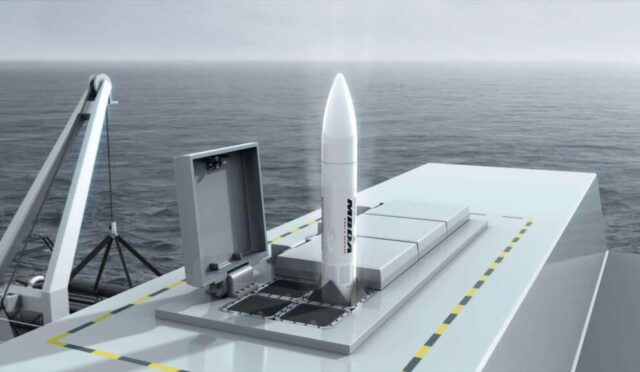Trump’s Controversial Gaza Plan Unveiled
President Donald Trump has made a bold and controversial announcement regarding the Gaza Strip, proposing that the U.S. take control of the area and resettle its Palestinian inhabitants in other countries. This surprising plan was revealed during a joint press conference with Israeli Prime Minister Benjamin Netanyahu at the White House, where the news was met with audible gasps. Trump claimed that he could transform Gaza into ‘the Riviera of the Middle East,’ though he provided scant details on how he would relocate over two million Palestinians or manage the region’s complex realities.
During the press conference, Trump stated, ‘The U.S. will take over the Gaza Strip, and we will manage it effectively. We’ll own it.’ He asserted that he had the backing of ‘the highest leadership’ in the Middle East, implying increased pressure on neighboring countries like Egypt and Jordan to accept displaced Gazans. However, both nations, along with Palestinian representatives, have immediately rejected Trump’s unexpected proposal.
Long-Term Ownership and Historical Implications
Trump’s vision for Gaza includes a notion of ‘long-term ownership’ by the United States, suggesting that this plan could lead to a magnificent transformation of the region. Netanyahu, a significant ally of the U.S., remarked that Trump’s proposal could ‘change history’ and warranted serious consideration. This meeting marked the first visit by a foreign leader since Trump regained power, and it was initially intended to discuss a potential second phase of the Israel-Hamas ceasefire.
However, the discussion shifted dramatically as Trump unveiled his strategy, which could fundamentally reshape the dynamics of the Middle East. Trump even hinted at visiting Gaza, asserting that the area should not be rebuilt for the Palestinians who have historically lived there. ‘It should not go through a process of rebuilding and occupation by the same people who have… lived there and died there,’ he stated, raising further concerns about his intentions.
Palestinian Response and International Reactions
In response to Trump’s proposal, the Palestinian envoy to the United Nations, Riyad Mansour, vehemently opposed the resettlement suggestions, emphasizing that ‘our homeland is our homeland.’ Palestinian opposition to the plan was echoed by residents of Gaza, with local voices like Hatem Azzam expressing disdain for Trump’s characterization of the region. ‘Trump thinks Gaza is a pile of garbage—absolutely not,’ he declared, highlighting the deep frustrations felt by many Palestinians.
While Trump remained vague about how he would implement the takeover, he suggested that U.S. troops might need to be deployed in this highly volatile area ‘if necessary.’ This is not the first time Trump has expressed thoughts on Palestinian territory in real estate terms; he previously suggested that Gaza could be ‘better than Monaco.’ Such comments have fueled further outrage and skepticism among those opposed to his plan.
Netanyahu’s Support and Regional Tensions
Standing alongside Trump, Prime Minister Netanyahu praised him as Israel’s ‘greatest friend’ and acknowledged his ‘willingness to think outside the box.’ The Israeli leader has historically had a complicated relationship with Trump, yet he appears eager to leverage the former president’s support as his own ties with the Biden administration face challenges due to ongoing conflicts in Gaza.
Netanyahu did not shy away from discussing potential military actions against Hamas and other adversaries in the region, including Hezbollah and Iran. ‘We will conclude the war by winning the war,’ he stated emphatically, while also expressing a commitment to securing the release of hostages held by Hamas. He further expressed optimism about normalizing relations with Saudi Arabia, a deal he believes is ‘going to happen,’ despite recent setbacks.
Saudi Arabia’s Stance and Broader Implications
In the wake of Trump’s announcement, Saudi Arabia made it clear that it would not formalize ties with Israel unless a Palestinian state is established. This stance reflects the broader regional hesitance toward Trump’s ambitious plan, which is anticipated to face significant opposition from Palestinians and several Middle Eastern nations. Egypt, Jordan, and Qatar have all categorically rejected the idea of relocating Palestinians from Gaza.
The context of Trump’s proposal is rooted in the ongoing conflict that escalated when Hamas attacked Israel on October 7, 2023, taking hostages and resulting in significant casualties on both sides. With the death toll rising sharply, the humanitarian crisis in Gaza has deepened, leading to urgent calls for a resolution that respects the rights and wishes of the Palestinian people.
Casualties and Humanitarian Crisis
The conflict’s escalation has seen Hamas take 251 hostages into Gaza, with 76 still unaccounted for, including 34 who the Israeli military claims are deceased. The assault resulted in the deaths of 1,210 individuals in Israel, primarily civilians, while Israeli retaliatory actions have led to the deaths of at least 47,518 in Gaza, most of whom are also civilians, according to reports from the Hamas-controlled health ministry.
The United Nations has deemed these casualty figures credible, reflecting the devastating impact of the ongoing violence. While a truce that began on January 18 has allowed for humanitarian aid to flow into Gaza and for some displaced individuals to return, the situation remains precarious, with Israel conducting operations against militants in the West Bank. As the international community watches closely, the implications of Trump’s plan add another layer of complexity to an already volatile situation.







